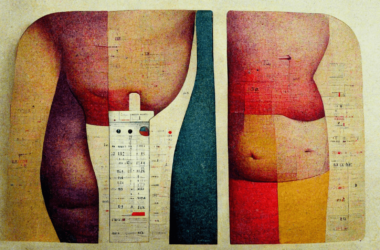What if we could rid the world of any species that we didn’t like: The annoying ones, the dangerous ones, and the disease-spreading ones? This seems like a tall order and one that carries a number of ethical quandaries.
With the advent of CRISPR/Cas9 gene technologies, the once theoretical bioethics is now a real consideration for scientists in the field. Target Malaria, a university-based research program at Imperial College London, is developing methods for limiting the populations of disease-carrying mosquitos.
Last year, malaria caused half a million deaths, mostly of children under five years old. Three related species of Anopheles mosquitoes are primarily responsible for most malaria transmission. Of these, only the female mosquitoes can bite, and thus transmit the disease.
Target Malaria is testing approaches designed to reduce the number of female Anopheles mosquitoes in sub-Saharan Africa. Cutting down the population of malaria-carrying mosquitoes through the use of CRISPR/Cas9 gene drives will in turn reduce the transmission of the disease.
Gene drives are genetic elements that "drive" themselves and nearby genes to be inherited by almost all offspring. In using gene drives, genes are artificially stimulated to manipulate specific genes in entire populations.
Normally, in a sexually reproducing organism, a particular gene has a 50 per cent chance of being inherited by its offspring. Gene drives, however, ensure that a gene is passed on to almost all progeny––even if that gene reduces the viability of the organism.
CRISPR/Cas9 is a gene-editing technique that allows scientists to delete, insert, or replace a gene of interest in a given species. Coupled with gene drives, these genes of interest would be inherited by nearly all offspring.The gene can then spread quickly through an entire population and to every population group of that species.
The CRISPR/Cas9 gene drive is an immensely promising and powerful biological tool, with numerous possible applications. For example, it can cause all males of a species to be sterile, removing the need for toxic chemical insecticides and herbicides to eliminate pests or weeds, or eradicating harmful invasive species.
“[Gene drives] offer a way to solve biological problems with biology,” the Sculpting Evolution Group at the Massachusetts Institute of Technology––the first to suggest the use of CRISPR/Cas9 to build gene drives––said. “We are finally learning to speak with the living world using nature's own language.”
A similar process could be used to eliminate other devastating diseases transmitted by mosquitoes, such as Dengue fever and Zika.
“Some species of […] mosquitoes […] are invasive species in North America […and] may very well be eradicable with CRISPR/Cas9 or related techniques,” Dr. Tim Geary, director of McGill’s Institute of Parasitology, said. “This would markedly reduce the incidence of dengue […] and Zika and would target mosquitoes that were not found here. Their eradication would leave all the other native North American species of mosquitoes intact and so would have minimal effects on the ecology of mosquitoes here.”
While promising, this technology is not without enormous ethical ramifications.
"We now have the ability to change entire species at will. Should we?” asked journalist Jennifer Kahn in a TED talk about gene editing.
Many scientists are cautioning the use of CRISPR-based gene drives, emphasizing the importance of safeguards and the necessity for more transparency in the scientific field.
“Even developing a CRISPR gene drive in the laboratory is ethically questionable because an accident could directly impact the lives of others, not to mention seriously damage public trust in scientists,” the Sculpting Evolution Group’s website said.
It is evident that this powerful tool needs to be regulated and treated with the caution it deserves. There are many differing opinions on how to accomplish that goal, including requiring any plans for its use be made public prior to starting experimentation or requesting approval from a regulatory body. Nonetheless, the life-saving potential of CRISPR-based gene drives is huge.
“We did not feel bad about eradicating smallpox or polio or rinderpest,” Dr. Geary, who is in favour of the use of this technique, said. “Getting rid of even 50 species of mosquitoes out of the thousands of species would have minimal effects on ecology, but would change the course of millions of lives.”









